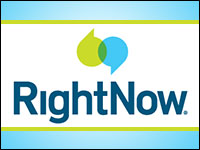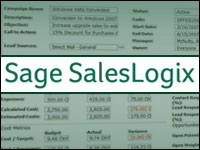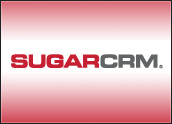
Ken Jones, cofounder and executive director of Maximo Nivel, an executive language center, knew his company needed a CRM tool as early as 2006. His company was growing fast and using a variety of tools to meet CRM needs, including Outlook. Unfortunately, like many small business owners, Jones was unaware of any CRM options available.
Philippa Kennealy, MD, president of The Entrepreneurial MD, an entrepreneurship coaching company that targets physicians, faced a similar situation.
“I was using bits and pieces of tools,” Kennealy told CRM Buyer. Her tools included a shopping cart, an auto responder and Outlook. “I had my information all over the place.”
Most small companies start out this way with a CRM process but no comprehensive CRM tool to support it, according to Dmitri Eroshenko, CEO of Relenta.
“Instead, they mix and match various tools to manage their workflows, usually with little or no planning or organizing: email, contact managers, calendars, to-do lists, intranets, Web and desktop applications, e-commerce databases, Excel spreadsheets — even Post-it notes,” Eroshenko told CRM Buyer.
In mid-2008, Jones started researching CRM solutions. However, he was very cautious about settling on one.
“I was unconvinced,” Jones told CRM Buyer. He started using Relenta in October 2008.
Kennealy discovered her CRM solution, Infusionsoft, accidentally. She attended a free seminar given by Dan Kennedy for small business owners and became convinced of the advantages a CRM system could bring a small business.
CRM Benefits for Small Businesses
A dedicated CRM tool solves the problem of data fragmentation and boosts productivity, Ereshenko said.
Kennealy began using Infusionsoft 18 months ago and even became a beta tester for the company. The biggest advantage was having all her tools in one package.
“It was all going to be contained in one tool,” she stated. She has noticed an enormous improvement in productivity and efficiency without bringing on more people, which has saved her money.
Having his company’s information consolidated in one tool was also an important benefit for Jones. In addition, Relenta allowed him to take a more intensive look at the company and made communication more efficient, he said.
Small businesses can use CRM to view information about a customer or prospective customer, use that information to target marketing communications, and boost sales tremendously, said J. Tyler Garns, director of marketing for Infusionsoft.
“A CRM solution gives the business a central database for all employees to work out of and ensure everyone has access to the same information,” Garns told CRM Buyer. “A good CRM will give the business the ability to market in a targeted way by pulling lists of people that are likely to respond to specific messages.”
Simpler Is Better
The first CRM tools catered to the needs of large companies and were not really suitable for small businesses, Eroshenko pointed out. They were prohibitively expensive, far too complex, and had many features that a “typical small, lean and mean company” did not need. A tool like Relenta, on the other hand, which is geared for small businesses, helps small companies solve their CRM problems rather than create more work for them.
“CRM was a concept created for big business many years ago,” Garns noted. Simpler was better, especially for a small business with limited resources.
A system that will require a great deal of manual entry on the part of employees will be counterproductive, he added. However, small businesses are actually at an advantage when it comes to implementing a CRM system as long a they choose a good, comprehensive system and one that is easy to integrate, Garns believes.
“Implementing CRM in big businesses can be disastrous. Too many departments and too many big egos are involved, chaos ensues, millions of dollars in hard cash and time are wasted, and the projects often fail in the end. Small businesses are leaner and meaner and can efficiently put the right systems in place that help them grow,” he stated.
When to Buy
When small businesses start out, they are usually focused on building a list of prospects and customers, noted Garns. The value of a business is usually in the size and quality of that list.
“A simple CRM solution can help a small business build that list,” he said. When a small business is ready to use a CRM solution, it is now easier than ever to find the right tool.
“Unlike CRM tools in the past, many CRM tools are now affordable,” advised Eroshenko. There is no need for a company to wait to buy a CRM tool.
Nurturing and Generating Leads
CRM tools can also help a company with lead nurturing, Eroshenko said.
Many CRM tools include the ability to capture leads through Web forms, and track and report on customer behavior and preferences, added Garns. That information can then be utilized to create targeted marketing communications.
Infusionsoft helped Kennealy with lead generation very much, she affirmed. She uses it in conjunction with a lead-generating tool. It helps build and reinforce her business relationships by tracking a lead’s sequence of actions and notifying her of those actions.
“It comes across as an intelligent conversation,” she said.
Choosing the Right Solution
Before investing in a CRM tool, a small business should consider what goals it is trying to achieve and determine its overall strategy, Kennealy advised.
It should then look for a vendor that offers good support and training, and a complete, robust solution that is scalable as the business grows, she recommended. The right CRM tool can be a valuable time saver.
“It works like another employee in my business,” she said.
CRM for the Small Business, Part 2: Choosing the Right CRM Tool























































Social CRM
See all Social CRM